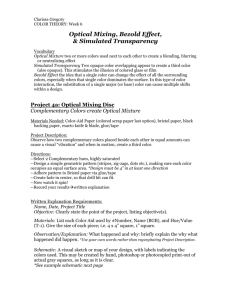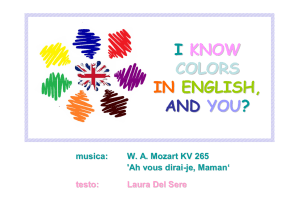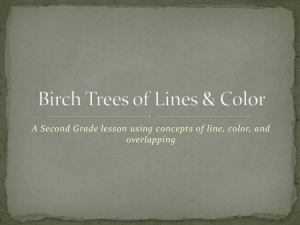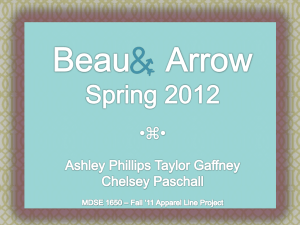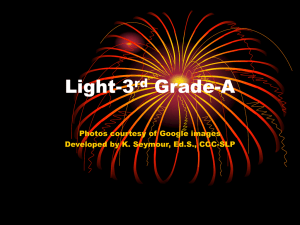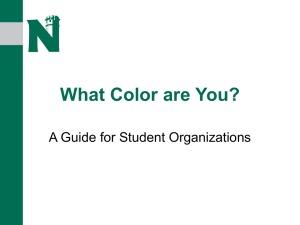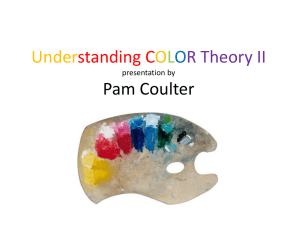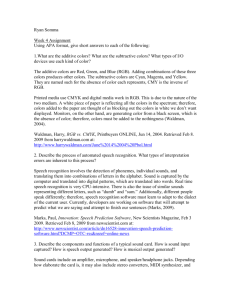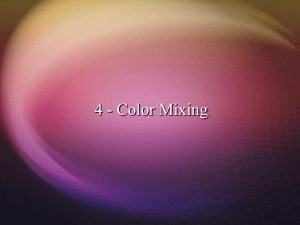Optical Mixtures the Bezold Effect
advertisement
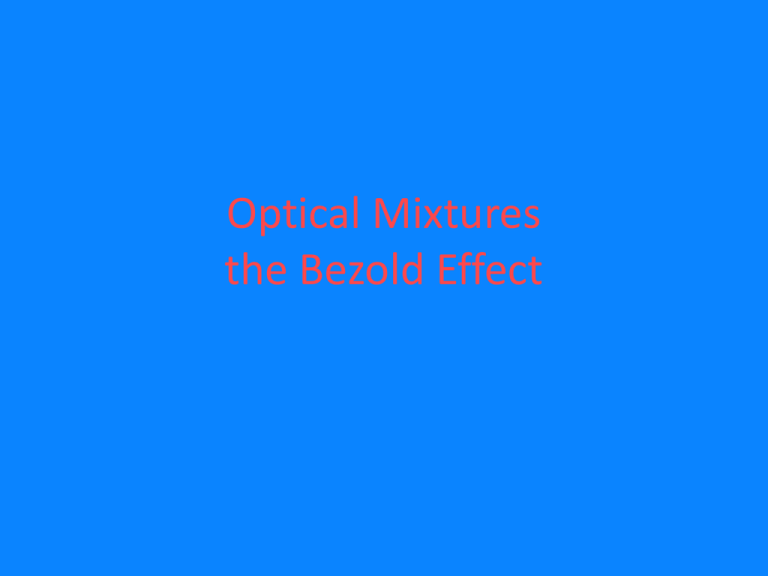
Optical Mixtures the Bezold Effect Bridget Riley Optical Mixtures • Two or more colors next to each other to create a blending, blurring , or neutralizing effect. Blending: Two colors placed next to each other in small amounts will seem to create their mixture, Blue+red= violet Size of color area and value of adjacent colors will determine how successful the illusion is. Blurring: Two colors of similar hue, value and saturation will seem to blur into one another, making it difficult to determine their edges. This works best with ANALOGOUS colors—Colors next to one another on the color wheel Neutralizing: two complements will optically mix to produce gray. This was the theory pointilists followed. In actuality, it doesn’t always work. Many times complements produce OPTICAL VIBRATIONS, rather than optically mixing Why use optical mixtures rather than just mixing paints? Creating Optical Mixtures using additive primaries creates an effect similar to the light-based color system. Red and Green seem to create yellow Blue and red seem to create magenta Blue and green seem to create cyan • Additionally, more luminosity is created than with pigment mixing----similar to the additive system. • This was the intention behind movements like Pointilism and Impressionism—to create a sense of light by placing colors next to one another rather than mixing colors. Monet, Haystacks Monet George Seurat, Bathers Chuck Close, Agnes Chuck Close Chuck Close, Studio shot Richard Anuskiewics The Bezold Effect • Wilhelm Bezold, a textile designer discovered that by changing one dominant color in a pattern or composition, it is possible to change the entire ‘look’ and ‘feel’ of the composition. Does the size of the red bricks seem to change? The size of the grout between the bricks? What about the white square? Which seems ‘softer’? How is the Bezold effect related to simultaneous contrast in this example? • The Bezold Effect will be most effective if the changing colors are very different in hue and/or value—which is why so many examples showed a black/white change.
